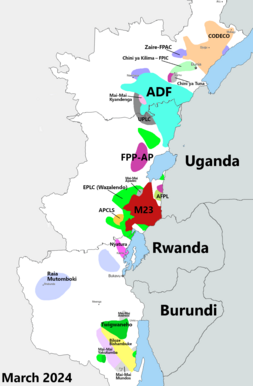2G is short for second-generation cellular network. 2G cellular networks were commercially launched on the GSM standard in Finland by Radiolinja in 1991.

The London School of Hygiene & Tropical Medicine (LSHTM) is a public research university in Bloomsbury, Camden, and a constituent college of the University of London that specialises in public health and tropical medicine.

The Sudanese Air Force is the air force operated by the Republic of the Sudan. As such it is part of the Sudanese Armed Forces.
The Congolese Air Force is the air branch of the Armed Forces of the Republic of the Congo, in the Republic of the Congo (Congo-Brazzaville).
Global Indian Film Awards (GIFA) was an awards ceremony held between 2005 and 2007, conceptualized to acknowledge excellence in the Indian Film industry and honour artists in 28 categories across various genres, from acting to film making. It is held in a different country each year. 2005 in Dubai, Kuala Lumpur in 2006, and will be held in Chicago in 2013.

The Kivu conflict began in 2004 in the eastern Congo as an armed conflict between the military of the Democratic Republic of the Congo (FARDC) and the Hutu Power group Democratic Forces for the Liberation of Rwanda (FDLR) in the Democratic Republic of the Congo. It has broadly consisted of three phases, the third of which is an ongoing conflict. Prior to March 2009, the main combatant group against the FARDC was the National Congress for the Defence of the People (CNDP). Following the cessation of hostilities between these two forces, rebel Tutsi forces, formerly under the command of Laurent Nkunda, became the dominant opposition to the government forces.

Epiblema foenella, the white-foot bell, is a moth of the family Tortricidae.
Epiblema grandaevana is a moth, belonging to the family Tortricidae. The species was first described by Friederike Lienig and Philipp Christoph Zeller in 1846.
Epiblema inulivora is a moth belonging to the family Tortricidae. The species was first described by Edward Meyrick in 1932.
Epiblema similana is a moth belonging to the family Tortricidae. The species was first described by Michael Denis and Ignaz Schiffermüller in 1775.
Epiblema abruptana is a moth belonging to the family Tortricidae. The species was first described by Lord Walsingham in 1879.
Epiblema absconditana is a moth belonging to the family Tortricidae. The species was first described by Jean Jacques Charles de La Harpe in 1860.
Epiblema angulatana is a moth belonging to the family Tortricidae. The species was first described by Julius von Kennel in 1901.
Epiblema arizonana is a moth belonging to the family Tortricidae. The species was first described by Powell in 1975.
Deuterogonia is a monotypic butterfly genus belonging to the family Oecophoridae described by Rebel in 1901. Its only species, Deuterogonia pudorina, was described by Wocke in 1857 as Gelechia pudorina.
Epiblema simploniana is a species of moth belonging to the family Tortricidae.
Epiblema cnicicolana is a species of moth belonging to the family Tortricidae.



